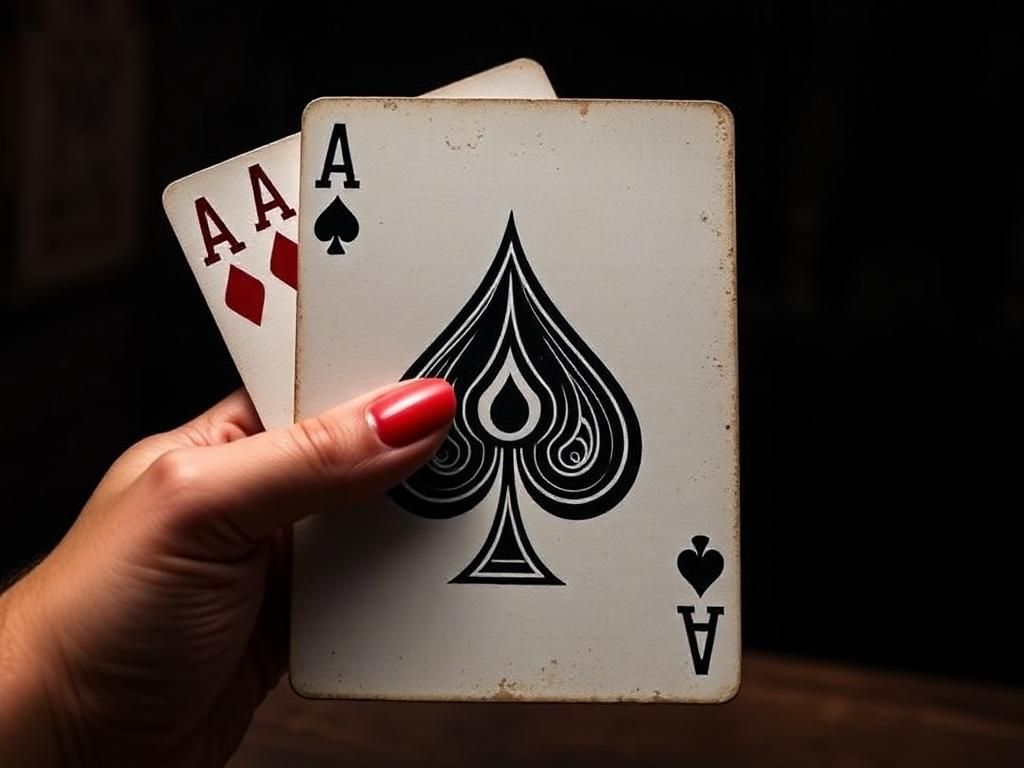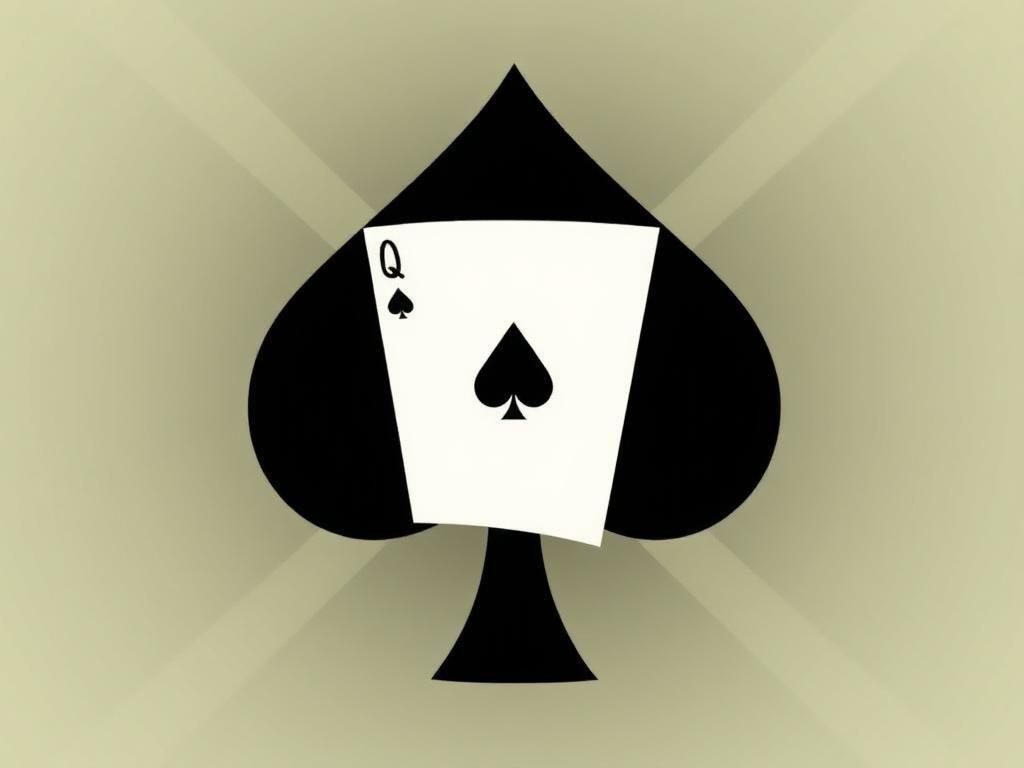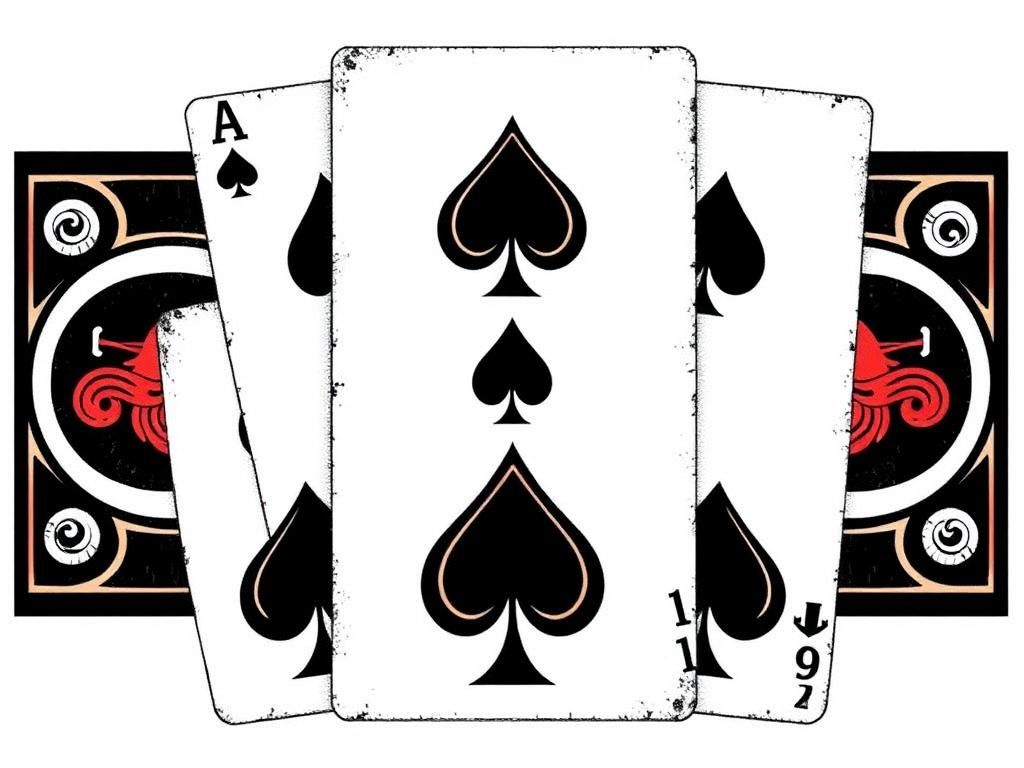The ace of spades significance extends far beyond its role in a simple deck of cards. This intriguing card has woven itself into the fabric of various cultures and traditions throughout history, representing an array of meanings and symbolism. From its dark associations with death and luck to its representation of power and military might, the ace of spades has cemented its status as a potent symbol. This article will explore the rich history, diverse symbolism, and cultural associations tied to the ace of spades, shedding light on why this single card holds such prominence in human society.
Historical Background
Origins of Playing Cards
Playing cards first appeared in China around the 9th century and gradually made their way to Europe by the late 14th century. The deck originally consisted of various suits, the most notable being hearts, diamonds, clubs, and spades. In this context, the ace of spades evolved to symbolize high status within the game, often viewed as the most powerful card.
The Card’s Evolution Over Time
Throughout history, the design and symbolism of the ace of spades have undergone numerous changes. For example, early decks were handmade, showcasing intricate designs that reflected the aesthetics of their time. Over the years, regional variations emerged, each attaching new meaning to the ace of spades. In some cultures, it became synonymous with bad luck, while others hailed it as a bringer of fortune.
Symbolism of the Ace of Spades
Common Interpretations
The ace of spades is often shrouded in darkness, representing various themes such as:
– Death and mortality: In many cultures, the ace of spades is linked to the inevitability of death, serving as a reminder of life’s fragility.
– Luck and fortune: Conversely, some consider the ace of spades a harbinger of good luck, especially in gambling contexts.
– Military symbolism: The ace of spades has often been associated with bravery and valiance, particularly during wartime periods.
Cultural Associations
The ace of spades finds numerous associations across cultures:
– In Western culture, it has often been connected to themes of death, danger, and illicit gambling.
– In Eastern cultures, the card can embody strength and resilience, often touted as a symbol of good fortune.
– Its portrayal in art and literature further exemplifies its multifaceted significance. For instance, the ace of spades is commonly featured in literary works symbolizing fate and destiny.
The Ace of Spades in Popular Culture
Music and Entertainment
The ace of spades has made its mark in music, most famously as the title of a widely recognized song by the heavy metal band Motörhead. The lyrics celebrate the card’s connections to luck and rebellion. Furthermore, its presence in movies and television shows often alludes to themes of risk and high stakes.
Gaming and Gambling
Within the realm of card games, the role of the ace of spades is almost legendary. For example, in poker, it can herald a winning hand or shift the dynamics of a game. Its importance has permeated gambling culture, becoming a coveted symbol among players.
Fashion and Merchandise
The ace of spades has transcended its card-based origins to influence fashion and merchandising. Many apparel brands incorporate the image into their designs, making it a sought-after motif among fashion enthusiasts. Tattoos featuring the ace of spades have similarly surged in popularity, symbolizing various personal meanings for wearers.

The Ace of Spades in Military Context
Historical Use in Warfare
During the Vietnam War, soldiers famously utilized the ace of spades as a psychological tool. It was believed that leaving behind this card would instill fear in opponents, associating it with death and bad luck. The card became a emblem of bravery and luck for many troops.
Contemporary Usage
Today, the ace of spades still resonates within military traditions, often appearing in unit insignias and tattoos symbolizing remembrance and respect for fallen comrades. Its lasting legacy within the military context reinforces its powerful symbolism.
Psychological and Emotional Significance
Fear and Superstition
The ace of spades has inspired various superstitions and fears. Many believe that encountering the card can usher in misfortune, while others may feel a sense of foreboding. This psychological association can be deeply rooted, affecting how individuals perceive its significance in daily life.
Empowerment and Identity
Conversely, some individuals embrace the ace of spades as a symbol of strength and empowerment. It can represent personal identity for many, serving as a reminder of resilience in the face of adversity. This duality reflects the card’s complex role in individual narratives.
The Ace of Spades in Fortune-Telling and Tarot
The Card’s Role in Games and Divination
In tarot decks, the ace of spades is often shuffled into the higher arcana, symbolizing power and potential. Its interpretations in fortune-telling revolve around new beginnings, strength, or challenges faced by the querent. Various divination practices incorporate the ace of spades, underscoring its enduring relevance.
Connections to Spirituality
The ace of spades has various associations with spiritual beliefs. In certain traditions, it symbolizes the connection between the physical and spiritual realms, acting as a gateway for insights. Different spiritual paths may interpret its significance differently, reflecting the diverse beliefs surrounding this card.
Summary of the Ace of Spades Significance

| Aspect | Meaning | Cultural Association |
|---|---|---|
| Historical Context | Powerful card in games | Soldiers during Vietnam War |
| Symbolism | Death, luck, strength | Varies across cultures |
| Popular Culture | Music, fashion, gambling | Influential in various media |
| Psychological Impact | Superstitions, empowerment | Personal identities |
| Spiritual Connections | Gateway to insights | Various spiritual paths |
FAQs
1. What does the ace of spades symbolize?
The ace of spades often symbolizes death, luck, and bravery. Its meanings can vary greatly across cultures.
2. Why is the ace of spades associated with war?
Its association with war, particularly during the Vietnam War, stems from soldiers using it as a psychological tool against enemies.
3. How has the ace of spades influenced fashion?
The ace of spades has inspired designs in clothing and tattoos, making it a trendy motif among fashion enthusiasts.
4. Is the ace of spades considered bad luck?
In some cultures, the ace of spades is connected to bad luck, while others view it as a symbol of good fortune.
5. What role does the ace of spades play in fortune-telling?
In tarot and other divination practices, the ace of spades is often interpreted as a card representing power and new beginnings.
6. Can the ace of spades be a symbol of empowerment?
Yes, for many individuals, the ace of spades serves as a representation of strength and resilience in adversity.
7. How has the symbolism of the ace of spades evolved?
Over time, the ace of spades has evolved to represent various meanings influenced by cultural shifts and regional interpretations.
8. In what ways has the ace of spades been depicted in literature?
The ace of spades appears in literature often depicting themes of fate, destiny, and risk, serving as a powerful narrative device.
9. What is the significance of the ace of spades in military culture today?
The ace of spades remains significant in military culture as a symbol of remembrance and honor for fallen soldiers.
10. How does the ace of spades relate to spiritual beliefs?
The ace of spades is often viewed as a bridge between physical and spiritual realms, inspiring various interpretations in different traditions.
